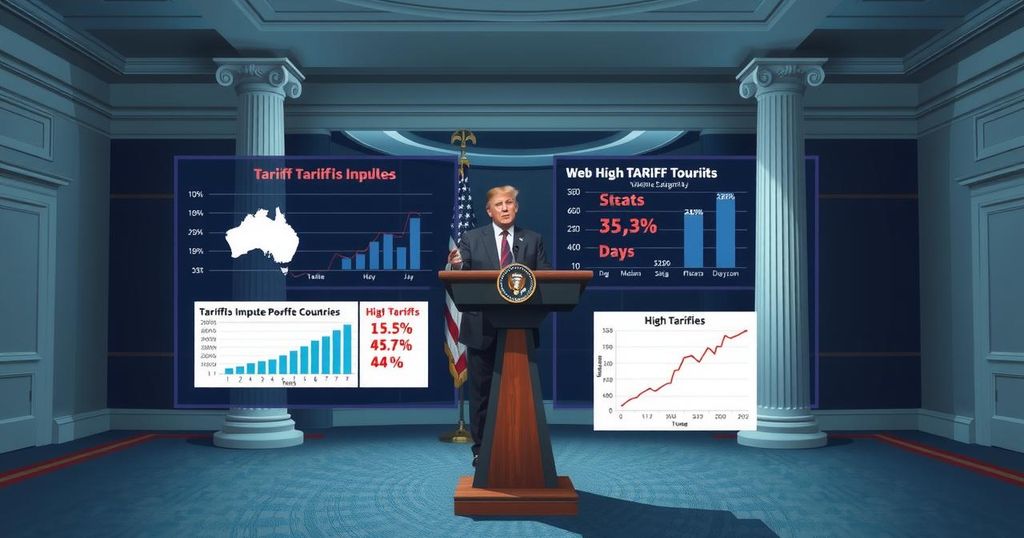World news
AMERICA, ASIA, CANADA, CURRENT_AFFAIRS, DONALD TRUMP, ECONOMICS, EU, EUROPEAN UNION, FOOD INDUSTRY, INDIA, JAPAN, KA, KAROLINE LEAVITT, LEAVITT, MAGA VOICE, MAGAVOICE, NATIONAL SECURITY, NORTH AMERICA, POLITICS, SOCIAL MEDIA, TRUMP, UNION, UNITED STATES, US, WASHINGTON, WHITE HOUSE, WHITE HOUSE PRESS
Michael Grant
0 Comments
White House Addresses Tariffs Ahead of Trump’s ‘Liberation Day’ Plans
The White House announced that there will be no exemptions on reciprocal tariffs as President Trump prepares for “Liberation Day” on April 2. Spokesperson Karoline Leavitt highlighted significant tariffs imposed by countries like Japan, the EU, and India on American products. The administration aims to address these trading disparities with new tariffs and a detailed report on global trade barriers affecting US exports.
During a recent press briefing, White House spokesperson Karoline Leavitt confirmed that there would be no exemptions on reciprocal tariffs amid US President Donald Trump’s plans for a “Liberation Day” on April 2. She cited the need to address “unfair trade practices” that American products face globally. Notable tariffs mentioned include: a 700% tariff on American rice from Japan, a 50% tariff on American dairy from the EU, and a 100% tariff on US agricultural goods from India.
Leavitt emphasized that the new tariffs would aim for sectoral and country-based fairness, echoing President Trump’s commitment to making trade more equitable. Protective tariffs imposed by other nations are preventing American businesses from competing effectively, displacing jobs, and hindering domestic industry growth. With this latest move, the administration seeks to rectify longstanding trade imbalances.
President Trump’s reciprocal tariffs are designed to equalize trade relationships where US exports are currently disadvantaged. Leavitt suggested that these tariffs would create “historic change” in how the US engages with trade partners, emphasizing the need for equal treatment of American products in global markets.
On the same day, the Trump administration revealed an extensive report detailing foreign trade barriers affecting US exports. The National Trade Estimate Report identified various non-tariff barriers, regulatory challenges, and specific countries imposing excessive tariffs. US Trade Representative Jamieson Greer expressed pride in the administration’s efforts to address these unfair trade practices, which adversely impact American exporters.
The report elucidated that technical barriers often arise from health and safety regulations or production quotas, which can inhibit US goods from entering foreign markets. The document underscores the ongoing trade disputes with nations like Canada concerning dairy and other agricultural sectors, spotlighting high tariffs and restrictive import systems that hinder fair competition.
In conclusion, the White House has reaffirmed its stance on implementing reciprocal tariffs as a strategic measure to rectify unfair trade practices faced by American exporters. Through the announcement of significant tariffs on foreign goods, the administration intends to protect domestic industries and workers from detrimental global market disparities. Moving forward, the release of the National Trade Estimate Report will further support these initiatives by identifying existing trade barriers that need to be addressed for a more balanced trade environment.
Original Source: www.ndtv.com




Post Comment